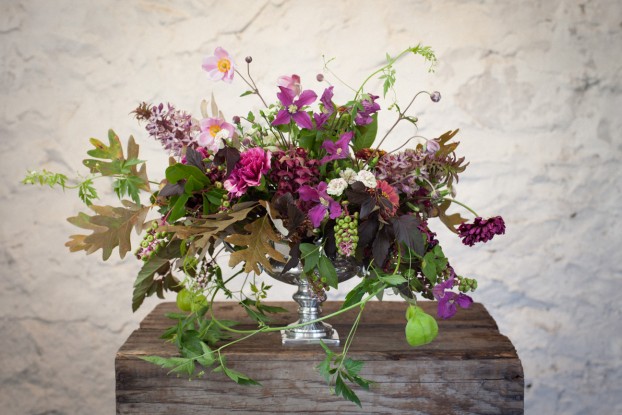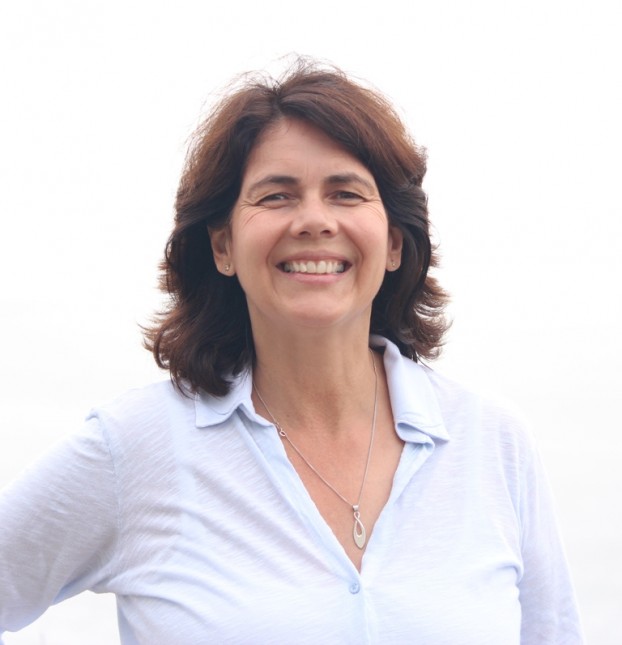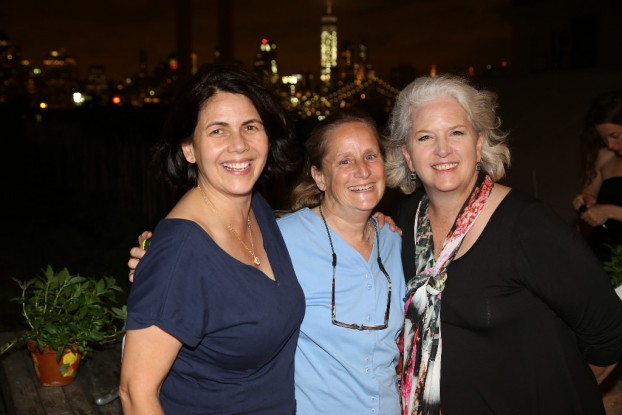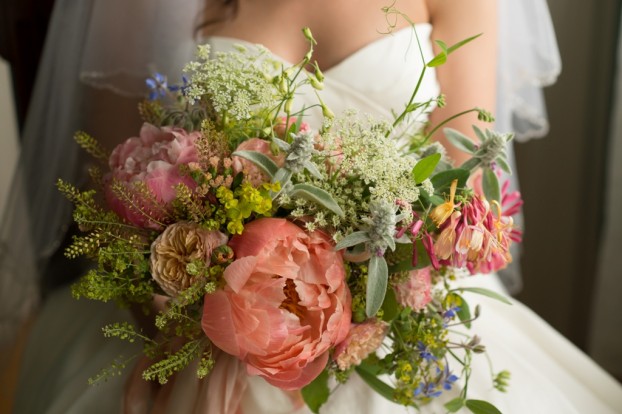Podcast: Play in new window | Download
Subscribe: Apple Podcasts | Podcast Index | RSS | More
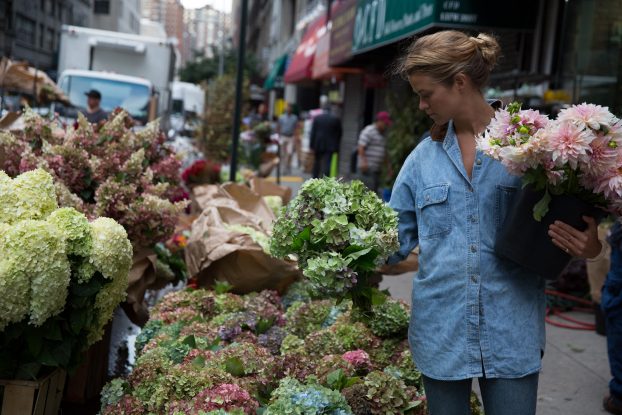
I met up with New York City-based floral entrepreneur Taylor Patterson while spending a few days in New York and Brooklyn while en route to join the festivities at Holly Chapple’s Flowerstock in Virginia. And I’m so incredibly glad for the time I spent with Taylor, today’s featured guest.
I adore Taylor and am enthralled with what she has accomplished through Fox Fodder Farm, her urban floral design business with multiple services and an elegant, high-style, yet farm- and seasonally-inspired aesthetic.
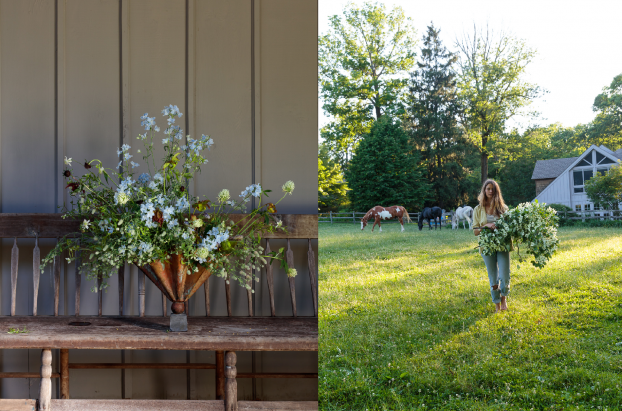
To learn about the origin of her business name Fox Fodder Farm, you’ll have to listen in to hear from Taylor herself. She has developed the business over the past eight years, evolving it into a studio that serves weekly business accounts, local floral deliveries, weddings and special events and a small retail kiosk at Canal Street Market.
I met Taylor this past March at the beautiful and inspiring Gathering Rose Workshop, hosted by Danielle Hahn of Rose Story Farm and Felicia Alvarez of Menagerie Farm and Flower, and held at Rose Story Farm in Carpinteria, outside Santa Barbara. It was a one-of-a-kind creative event focused entirely on the rose, growing, cultivation, selection and design. As I mention during my conversation with Taylor, my story about the workshop appears in a recent issue of Florists’ Review, which you can find here.
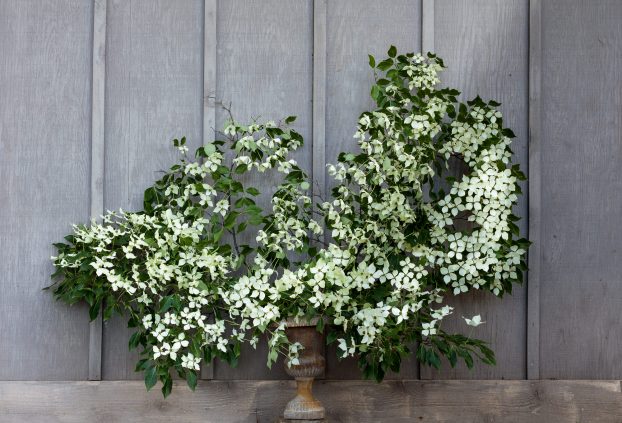
And I was touched and very much encouraged that after we met, oh so briefly, there, Fox Fodder Farm joined Slow Flowers as a member. Her support only served to increase my interest in learning more about her and her floral enterprise. So you’re the lucky recipient of my curiosity.
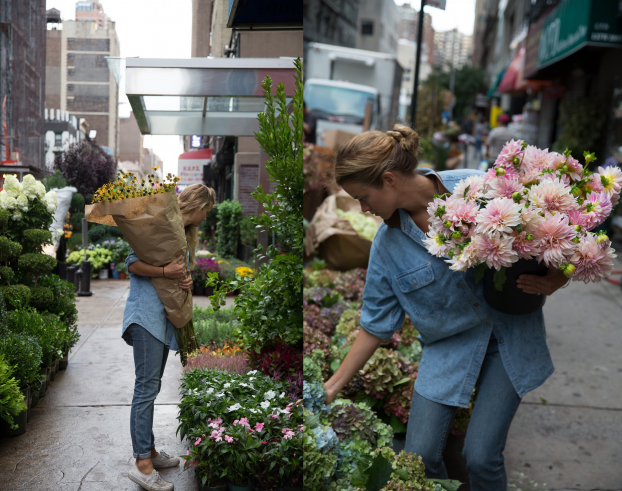
As with most of my interview subjects, I’m not always sure what direction the topics and themes we’ll take. The wonderful dialogue with Taylor left me thinking about the power of female leadership in our floral marketplace. The power to use beauty to influence sustainable choices, ethical flower farming, and a bold independence in such a crowded and cluttered marketplace. I hope you draw at least one idea from my interview with Taylor to employ or consider for your flower farm or studio. It’s a privilege to continue bringing fresh voices and new perspectives to this forum.
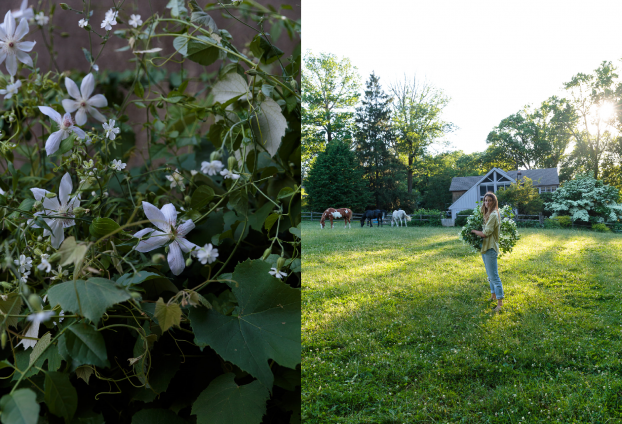
Find and follow Taylor and Fox Fodder Farm on Instagram and on Facebook
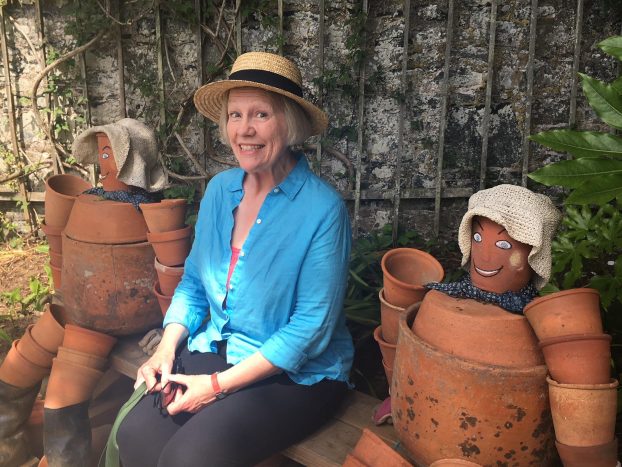
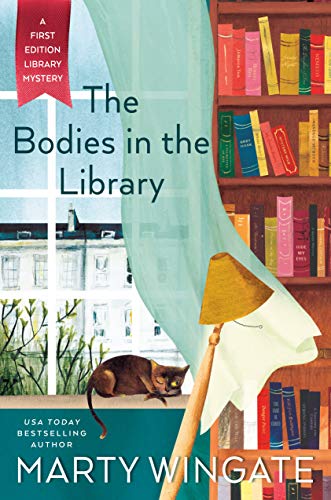
And a program note. You may remember this past May when I featured my mystery-writer friend Marty Wingate in the Slow Flowers Podcast, Episode 402.
In it we discussed her forthcoming new series – and the first book in her First Editions series was released this past week: You can order The Bodies in the Library by Marty Wingate from all online booksellers, or find a copy in your local independent book store or library.
Marty has two other British garden and nature-themed mystery series, which you’ll also want to check out. So proud of my friend and you met her first, here at the Slow Flowers Podcast.
Now, let’s visit Rhode Island and meet Julie Christina of Christina Flower Co. as we continue the Fifty States of Slow Flowers Series.
Julie is a floral designer with an emphasis on local and seasonal plant materials. The end result is a unique, earthy, and refined aesthetic. Hailing from Ohio, Julie first fell in love with nature, plants, and all things garden-related when exploring her family’s 10-acre property as a child. This love of the outdoors stuck with her as she went on to pursue a Bachelor of Science in landscape horticulture from Ohio State University, where she was able to study horticulture and garden design, as well as explore some of the finest English style gardens abroad at Myerscough College in England.
Julie has an impressive career in horticulture and public gardens, including, since 2008, serving as Education Program Manager at Blithewold Mansions, Garden & Arboretum, where she is continually inspired by the history, the people who lived here, and of course, the abundant gardens.
Julie has expanded Blithewold’s educational offerings, which is how I first met her five years ago as a speaker and workshop leader there. Blithewold has played a huge role in her own family, and she is now able to experience the full circle of sharing her and her husband Dan’s love of nature with their adorable, clever, curious, and fun-loving sons, Jack and Owen.
Find and follow Christina Flower Co. on Instagram and Facebook.
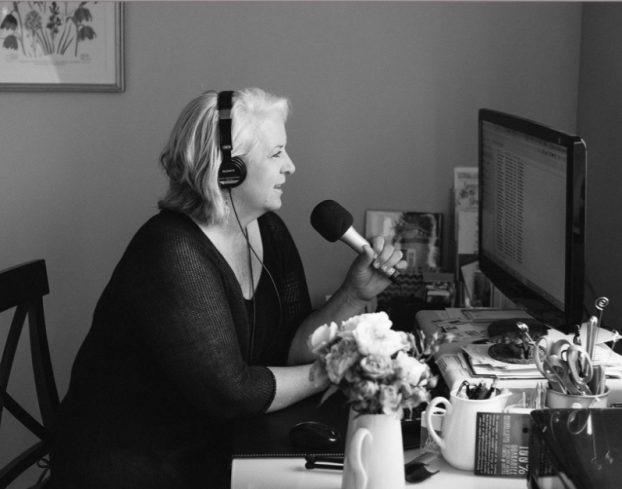
Thank you so much for joining me today! The Slow Flowers Podcast has been
downloaded more than 528,000 times by listeners like you. Thank you for
listening, commenting and sharing – it means so much.
As our movement gains more supporters and more passionate participants who
believe in the importance of the American cut flower industry, the momentum is
contagious. I know you feel it, too. I value your support and invite you to
show your thanks and with a donation to support my ongoing advocacy, education
and outreach activities. You can find the donate button in
the column to the right.
THANK YOU TO OUR SPONSORS
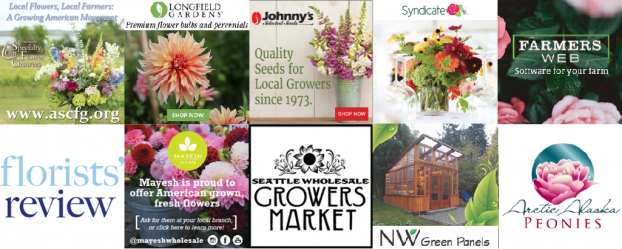
Florists’ Review magazine. I’m delighted to serve as Contributing Editor for Slow Flowers Journal, found in the pages of Florists’ Review. It’s the leading trade magazine in the floral industry and the only independent periodical for the retail, wholesale and supplier market. Take advantage of the special subscription offer for members of the Slow Flowers Community
Arctic Alaska Peonies, a cooperative of family farms in the heart of Alaska working together to grow and distribute fresh, stunning, high-quality peony varieties during the months of July and August – and even September. Arctic Alaska Peonies operates three pack houses supplying peonies throughout the United States and Canada. Visit them today at arcticalaskapeonies.com.
Syndicate Sales, an American manufacturer of vases and accessories for the professional florist. Look for the American Flag Icon to find Syndicate’s USA-made products and join the Syndicate Stars loyalty program at syndicatesales.com.
FarmersWeb. FarmersWeb software makes it simple for flower farms to streamline working with their buyers. By lessening the administrative load and increasing efficiency, FarmersWeb helps your farm save time, reduce errors, and work with more buyers overall. Learn more at www.farmersweb.com.
I’m Debra Prinzing, host and producer of the Slow Flowers Podcast. Next week, you’re invited to join me in putting more American grown flowers on the table, one vase at a time. And If you like what you hear, please consider logging onto iTunes and posting a listener review.
The content and opinions expressed here are either mine alone or those of my guests alone, independent of any podcast sponsor or other person, company or organization.
The Slow Flowers Podcast is engineered and edited by Andrew Brenlan. Learn more about his work at soundbodymovement.com.
Music Credits:
Cymbal Patter; Betty Dear; Gaena
by Blue Dot Sessions
http://www.sessions.bluehttps://creativecommons.org/licenses/by-nc/4.0/
Lovely
by Tryad
http://tryad.bandcamp.com/album/instrumentals
http://creativecommons.org/licenses/by-sa/3.0/
In The Field
audionautix.com










